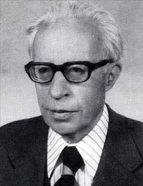

If the epistemic status of Science embraces History, the latter can only advocate it not as a science with general laws but as a relational and connectional knowledge, attempting in its syntax and combinations of polyhedral imbrications (hence the opening to the plurality of cultures and mentalities, to a comparative sociology of religions, particularly in O Amor Místico) from hypotheses, inferred (or rejected) by the labour of analytic-deductive logic from a documentary base. He thereby refutes the ‘miopic and ingenuous empiricism of the empiricists’, the historicist and ‘factualist’ siege which, by blocking access and even the possibility of criticism of historical reason, distant from definitive solutions, denies the understanding of new problems. It is not surprising that, following B. Croce (and R. G. Collingwood, whose The Idea of History would be welcomed by his assistants Ferrand de Almeida and António de Oliveira), Sílvio Lima, weighing up the historiographical method, ‘an interpretative construction, in a word, theory’, should point to the fertile history of ideas (also historiographical, as suggested in the lessons of Teoria da História) and vouch for the strategic lesson of Epistemology (and within it, that of gnosiology), without which any theory of History would be sterile.
A late lesson in an intellectual environment — particularly amongst historians (for the most part state guardians of memory) who most accentuated the state-centred vision — that was hostile to the theorization of history and its decisive departure from the altars and infallible dogmas of the past, where it had been officially closed up as a war chant or a redemptory psalm. An attitude also ostracized by those projected into the future the totalizing ‘demonstration’ of their subjective convictions. In the post-Newtonian universe whose epistle was literally transfigured by relativity and quanta (ironically, Niels Bohr declared that at the micro- and the macro-cosmic scale it was very difficult to make predictions, particularly of the future), Sílvio Lima agreed to the hypothesis of ‘discrete probabilism’ allowed by the reflection upon and through historiographical studies, nosological and social science. The condemnation of history to the determinist (or positivist) galley of the human deck he thought metahistorical, an unfounded apriorism: mutability could not be transformed into a new and predictable, immutable substantialist rule, finalistic and metaphysical (or transcendental). If the weak prognosis exonerates the oracles of the teleological epoch, it only ascertains (and authorizes) historiography as a form of the incessant theoretical representation and reactualization of temporality, that is to say, in its encounter with the Hermeneutic lesson. In this step, Sílvio Lima saw in historiography the sagesse of pathways (in time) and hence the elucidative contribution of philosophy, particularly in ethics, to make a knowledge — knowing (the) Being — as deflated as obsolete banality or ontological junk, by the functional and technocratic know-how. Also historiographical.
